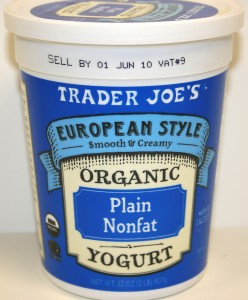
Yogurt is a milk product that is an excellent source of calcium. Even if you are lactose intolerant, yogurt may be a choice for a calcium-rich food. Yogurt contains active and live cultures of bacteria that aid in the digestion of lactose.
How Much Calcium is in Yogurt?
The amount of calcium in yogurt is quite variable. You need to check the nutrition label of each product. You can get more calcium from yogurt than a glass of milk, if you choose the right variety. For example, nonfat plain yogurt may contain 45% calcium or 450 milligrams per 8-ounce serving. An 8-ounce glass of milk has 300 milligrams.
Nonfat plain yogurt has more than double the amount of calcium in nonfat plain Greek yogurt. Greek yogurt has more protein and as a result contains less calcium per serving. Flavored yogurt also has less calcium per serving than the plain variety. If you don’t like plain yogurt, try adding your own fruit, nuts, and honey to plain yogurt for more calcium and fewer carbohydrates.
Milligrams per 8-ounce Serving
General examples of calcium content in yogurt:
- Nonfat, plain 400-450 milligrams
- Nonfat, plain Greek 200 milligrams
- Low fat, flavored 200-250 milligrams
- Plain goat milk 200 milligrams
Be sure and read the “Nutrition Facts” on each container – even the same brand may vary.
Fortified with Vitamin D?
In general, yogurt is not fortified with vitamin D. However, some yogurt products are fortified with vitamin D. The front label may specify “Vitamin D.” For the amount of vitamin D, check the “Nutrition Facts.”
For example, “Vitamin D 20%” is 80 IU. The food daily value for vitamin D is 400 IU. You can simply multiply the percent daily value by 4 to get the number of IUs. Therefore for this example, “Vitamin D 20%” you would multiply 20 times 4 to get the result 80.
